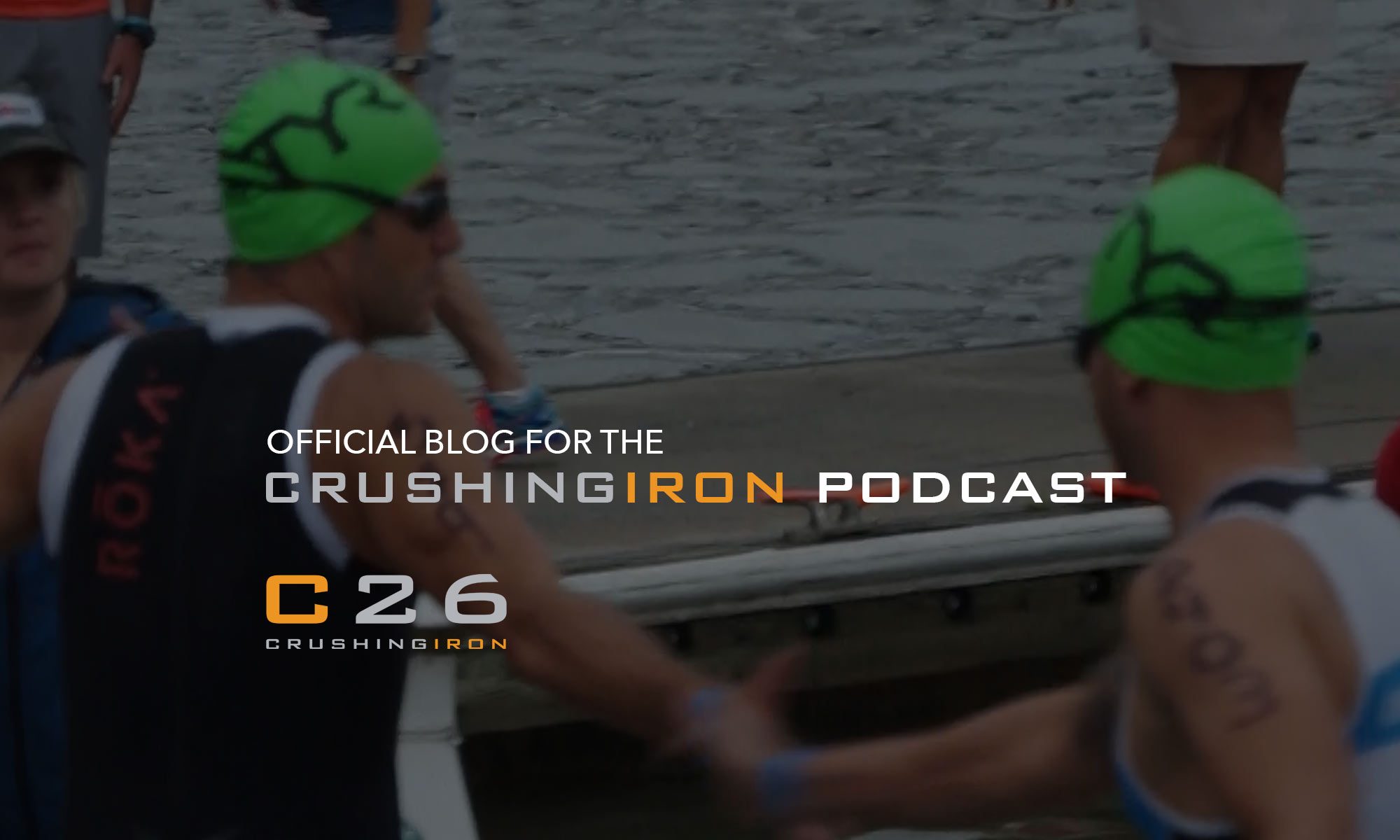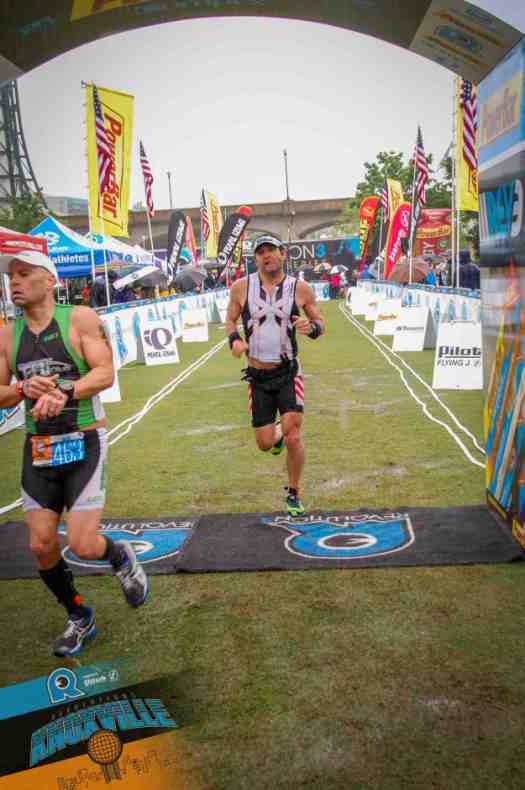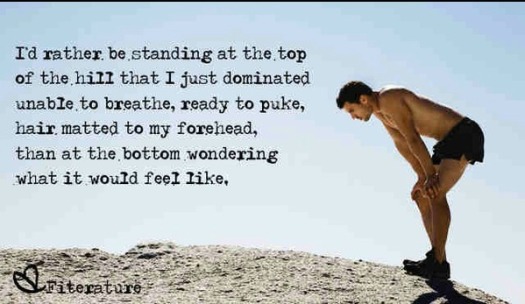Train with People – This was crucial to me, especially in the beginning. I wasn’t fast, nor did I have the endurance, but swimming, biking, and running with people was a major motivator. It helped me get out of bed and it helped me keep going once I was there. After a few months of this I knew I could keep up, that’s when I started fading into my own world.
Train Harder by Yourself – I think training alone is critical. The internal dialogue you create on long swims, bikes, and runs can either make or break you. When it comes to racing, the more often you talk yourself out of stopping, the better. The more you get used to pushing mileage without the distraction of others, the better. The more you can face aches and pains by yourself, the better.
Practice in Open Water – I’m convinced that 90% of swimming is feeling comfortable in the water, and open water is WAY different than the pool. A lot of people I talk with are kinda weirded out by lakes in general, so there’s that factor . . . but for me the ultimate key was swimming with other people in open water. You get used to the bumping and it really lowers your freak-out quotient, especially in a mass start. In retrospect, the one thing I wish I would have worked on more was sighting. We trained a lot with the same buoy and I simply got comfortable with my direction. But it would have been very wise to work harder on sighting different trees or whatever around the lake. Nothing will screw your swim time like going off line.
Work on Your Weakness – Cycling was by far my strength. Swimming and running, were a different story. I knew from the start that swimming was going to be my key event and I worked on it harder than the rest. For me it was a confidence thing. I HAD to come out of that water strong or the rest of my race would be a nightmare. I swam a lot early, but the last 8 weeks of training I was in the water (most times the lake) 3-4 times a week, swimming HARD. I also stayed true to building my running base and getting faster. It was very hard some nights, but I kept pounding the roads with regularity. I didn’t blow off the bike, but I did fewer (yet intense) rides to make sure I was keeping my muscles familiar with the motion.
Work on Your Speed – Let’s face it, after you build your endurance to a certain point, you can “coast” forever. But running a “lazy” 22 miles is not going to help your marathon time. You have to build in speed work. I was doing “shorter” hour-long runs most of the time, then would add an hour and a half “long” run on the weekends. The short runs were always laced with sprinting intervals or tempo sections. I knew I would never build to traditional marathon training distances, so I set my sights on one thing: Making a 9 minute pace feel like a walk. That was my ultimate IM pace goal, which I didn’t hit, but I did average 10 minute miles and never ran more than 14 miles before that marathon.
Take the Hilliest Way Home – I can’t tell you how many times I was at a crossroads on a run and willed myself toward “one more” hill. I ran a ton of hills during training for two reasons, one, they force you to have better form, and two, they are harder! I honestly love to run hills now. Hills make you focus and their the easiest way to push your limits.
Embrace Bad Weather – Nobody wants to swim, bike, or run on a cold and rainy day, but if you can handle bad weather, you are miles ahead of the game. Hell, a lot of people don’t even show up for a race if in bad weather. I was “lucky” to have three races on three awful 50 degree and rainy days. I really thought I was cursed. In the end, Wisconsin was perfect racing weather, but I was ready if it wouldn’t have been.
Hydrate – This seems so damn obvious I almost didn’t put it in here, but I’m convinced it is far more critical than nutrition. I’ve been in races where I could literally feel my chest drying out from breathing so hard. You have to teach your body how to burn fat stores and using only water for a lot of your training is a good way to do it. If your body isn’t working right, you’re screwed — and I just really believe, that while nutrition plays a big role, if you’re not hydrating well leading up to and during the race, you’re sunk. I drank ridiculous amounts during the race (and yes, pee’d a lot on the bike) including slowing to a walk through every aid station to drink with purpose.
Meditate – I suppose this could be titled “visualize” too but either way it’s about getting your mind straight. I crossed the finish line at Ironman a hundred times in my mind before I got onto the course. Many times on hard training runs I started imagining I was on the marathon at Wisconsin. I would be in incredible pain and tell myself, “This is how it’s going to feel, practice getting through it.” And I would. I just wouldn’t stop no matter how bad I thought it hurt. See the finish line.
Write About It – Out of all of this stuff, I almost believe my journaling the entire process could have been the biggest factor. I often put myself on public display as an idiot, but it helped me work through so many things I didn’t understand. Not only that, the feedback and encouragement you get cannot be understated. Don’t fool yourself, Ironman is a daunting physical challenge, but the more I learn about it, the more I believe it’s more in the mind.
——————–
This is how the race broke down for me:
Swim: 1:20:02
T1: 7:28
Bike: 6:03:35
T2: 4:43
Run: 4:23:10
Total: 11:58:58


